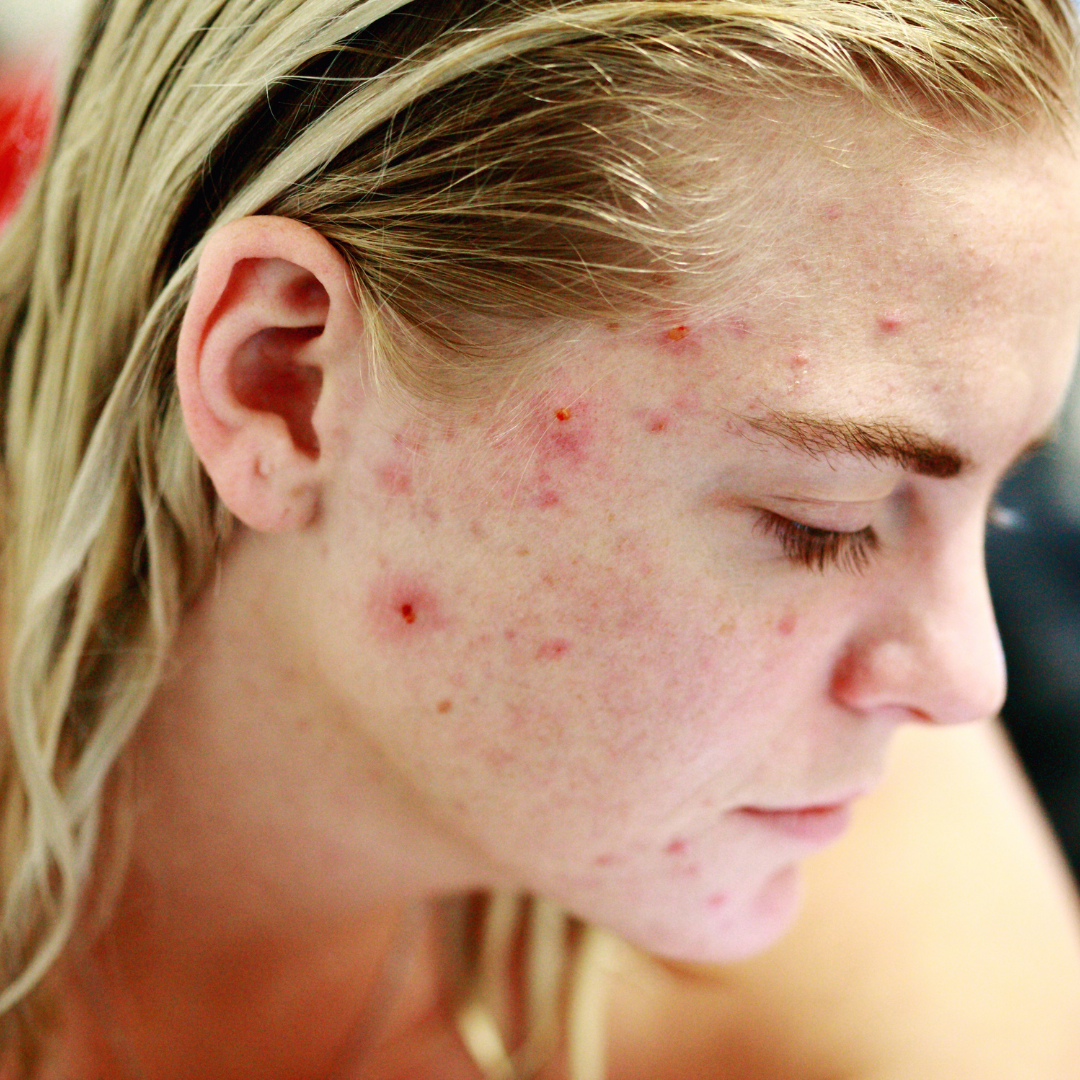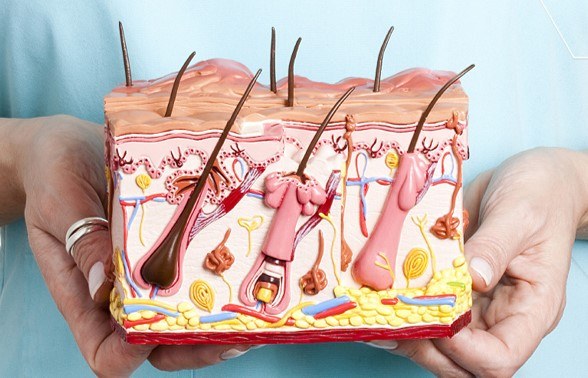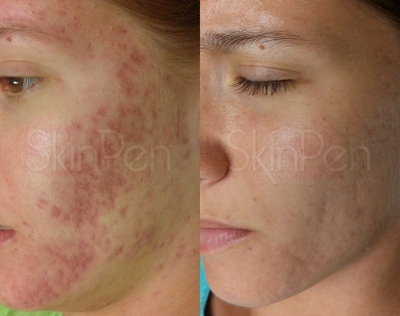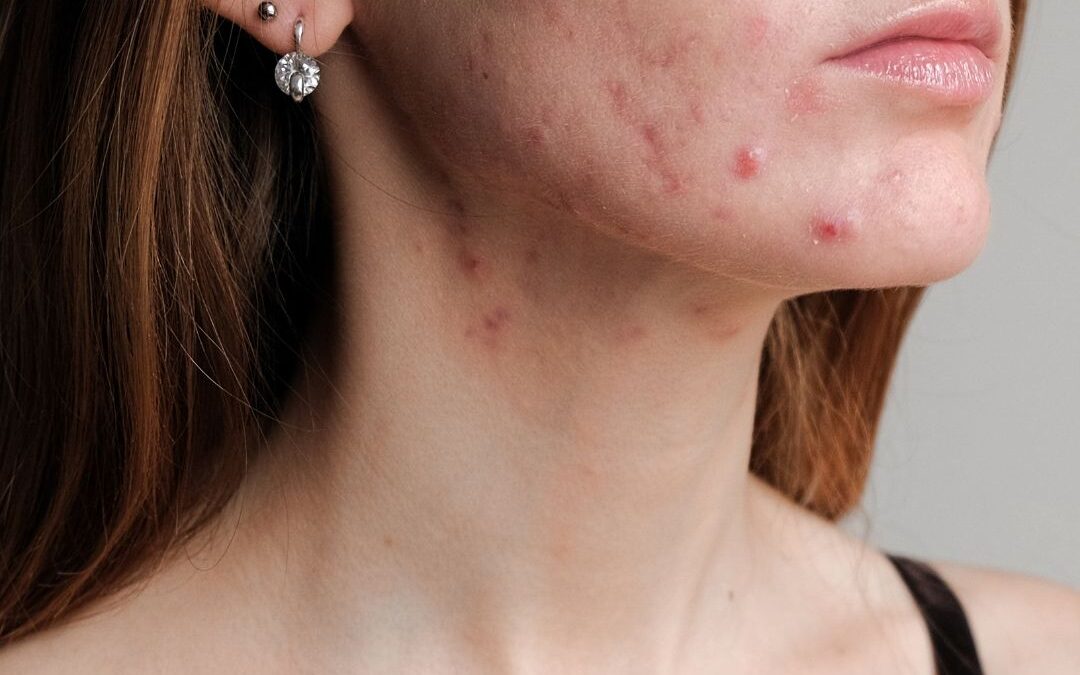Acne – The Uninvited Guest
Acne, a term we’re all familiar with, but how many of us truly understand it?
In essence, acne is a common skin condition where oil and dead skin cells clog hair follicles, leading to whiteheads, blackheads, or pimples. They primarily emerge on the face, forehead, chest, upper back, and shoulders, areas where oil glands are abundant. While acne commonly rears its head during the turbulent teenage years, it spares no age, affecting adults just as easily.
But here’s the catch.
Acne is not just about pesky pimples. It’s a condition with varying severity levels, ranging from mild irritations to more severe forms like cystic acne that can lead to scarring and hyperpigmentation. Consequently, it affects more than just your skin; it can leave emotional scars that run deep, impacting self-esteem and quality of life.

Decoding Myths Surrounding Acne
The world is full of misconceptions about acne, adding to the confusion and often leading to counterproductive habits. One widespread myth is that acne results from an unhealthy diet, particularly greasy food and chocolate. However, research has yet to confirm any direct correlation between specific foods and acne.
Another common misconception is that dirty skin causes acne. Contrary to this belief, acne is more related to the overproduction of oil, irregular shedding of dead skin cells, and buildup of bacteria, rather than dirt on the skin’s surface. Aggressive cleansing and scrubbing can irritate the skin and exacerbate acne instead of alleviating it.
Unmasking the Causes of Acne
Hormonal Imbalance – An Unseen Culprit
Our hormones play a significant role in our skin health. The sebaceous glands, responsible for oil production, are particularly sensitive to hormonal changes. During puberty, the increased androgen levels stimulate these glands, leading to excess oil production, clogged pores, and inevitably, acne. Likewise, hormonal changes associated with menstrual cycles and pregnancy can also instigate acne breakouts.
Lifestyle and Diet – The Connection Unveiled
While diet doesn’t cause acne directly, it can influence its severity and frequency. Certain high-glycemic foods, such as white bread and sugary drinks, can cause rapid spikes in blood sugar, contributing to increased oil production and a higher risk of acne. Similarly, lifestyle habits like smoking and high-stress levels can potentially aggravate acne.
Bacteria – The Invisible Foe
The bacterium Propionibacterium acnes (P. acnes) is a typical resident of our skin. But it’s when the population of these bacteria gets out of control that problems arise. An excess buildup of oil creates an environment where these bacteria thrive, leading to inflammation and acne.
Understanding acne is the first step towards conquering it. The next steps? Establishing preventive measures and seeking effective, personalised treatment, both of which we, at Freyja Medical, are proud to offer.

The Ripple Effect of Acne
Physical Consequences: Beyond Skin Deep
Acne is far more than an aesthetic issue. The physical consequences of this skin condition often extend beyond temporary spots on the skin. Persistent and severe acne can leave behind scars and cause hyperpigmentation, serving as constant reminders of past breakouts.
These scars can take various forms – ice pick scars, boxcar scars, rolling scars, or keloid scars, each presenting unique challenges in treatment. Hyperpigmentation, on the other hand, can result in dark spots or patches on the skin, contributing to an uneven skin tone. Additionally, acne often comes with a certain degree of skin discomfort, ranging from mild irritation to painful inflammation.
Acne’s Emotional Impact: The Unseen Scars
The implications of acne aren’t limited to physical manifestations. Acne can take a significant toll on mental and emotional health, often leading to lowered self-esteem, anxiety, and in more severe cases, even depression. The societal pressure for flawless skin can further exacerbate these feelings, making living with acne an emotionally challenging experience.
Proactive Measures: Prevention is Better Than Cure
Acne Skincare Routine: Consistency is Key
A proactive approach towards skincare can help you keep acne at bay. Start with cleansing your skin twice daily with a gentle, oil-free cleanser, helping to clear excess oil and dirt that might clog pores.
Next, follow up with a toner to restore your skin’s natural pH balance and remove any residual impurities. Ingredients like witch hazel or tea tree oil can be particularly beneficial for acne-prone skin due to their skin-calming properties.
Finally, the controversial one…. Try NOT to moisturise!
Yes, I know a lot of you have been brought up on the idea that you MUST always moisturise, but think of it this way. The underlying problem with acne is the overproduction of sebum (oil). Does it really make sense to plaster more oil on top?!
Balanced Diet: Nourishment from Within
While there’s no definitive diet that eliminates acne, certain dietary adjustments might help control breakouts. Foods with a high glycemic index and dairy products have been linked to acne in some studies. On the other hand, a balanced diet rich in fruits, vegetables, lean proteins, and whole grains can promote healthier skin.
Stress Management: The Mind-Skin Connection
While stress doesn’t directly cause acne, it can make it worse. When you’re stressed, your body produces more androgen hormones, which stimulate oil production and potentially more acne. Incorporating stress management techniques such as regular exercise, sufficient sleep, yoga, or meditation can help you keep your stress levels – and your acne – under control.

Our Approach to Acne Treatment
Customised Treatment Plans: Embracing Your Uniqueness
One size doesn’t fit all, especially when it comes to acne treatment.
We know that each individual’s skin type, lifestyle, and personal circumstances are unique. Hence, at Freyja Medical, our approach is to craft a treatment plan tailored exclusively to your needs.
Our initial consultation provides us with crucial insights into your skin’s health, your lifestyle, and your expectations, which guide us in devising the most effective treatment plan for you. Regular follow-ups allow us to refine your treatment strategy, ensuring it remains aligned with your skin’s evolving needs, thereby maximising results and minimizing potential side effects.
Cutting-Edge Treatments: Harnessing Innovation
Acne treatments have come a long way from over-the-counter creams and lotions.
Today, a multitude of innovative options are available to combat acne, and at Freyja Medical, we offer a diverse range of these treatments.
Our arsenal includes prescription topical treatments, prescription oral medications, advanced light therapies, chemical peels, and more. One of our unique treatment focuses is not only addressing active acne but also working on reducing scars and pigmentation left behind by past breakouts. Our aim is to provide you with clear, healthy skin, without the reminders of past acne struggles.
Our Dermatologist Doctors – Your Skincare Partners: The Human Touch
The cornerstone of our approach to acne treatment lies in our expert team.
Our dermatologist doctors and skincare specialists offer their extensive knowledge and expertise in dermatology and aesthetics, making them your trusted partners in your skin journey. But beyond their professional capabilities, they bring their commitment to your skin health and their empathetic understanding of the physical and emotional challenges associated with acne.
At Freyja Medical, we are dedicated to forming a partnership with our patients, creating an environment of trust and mutual respect. We strive to help you achieve your skin goals through a comprehensive understanding of your needs and the application of effective treatments.
The journey to clear skin may not always be straightforward, but with the right guidance and support, it is undoubtedly achievable. We’re here to accompany you every step of the way.

